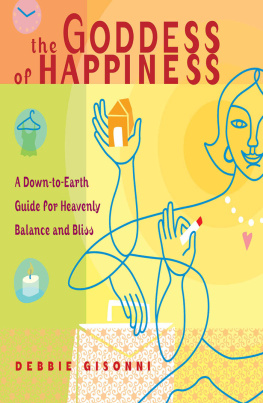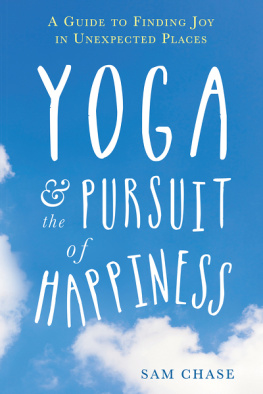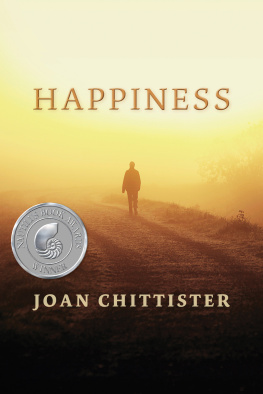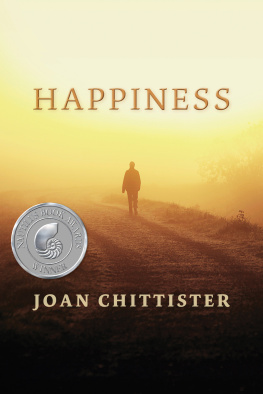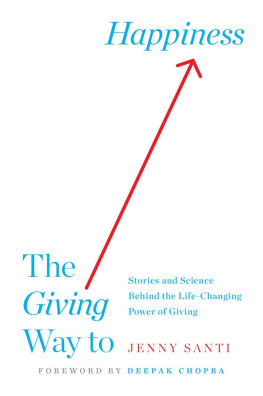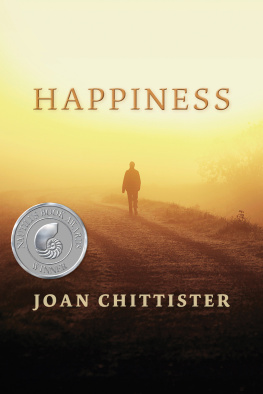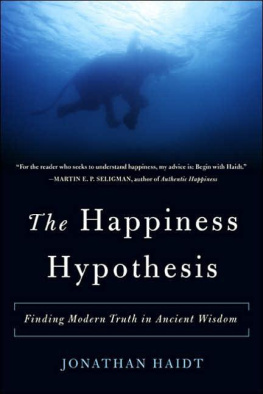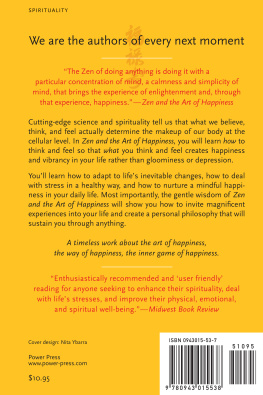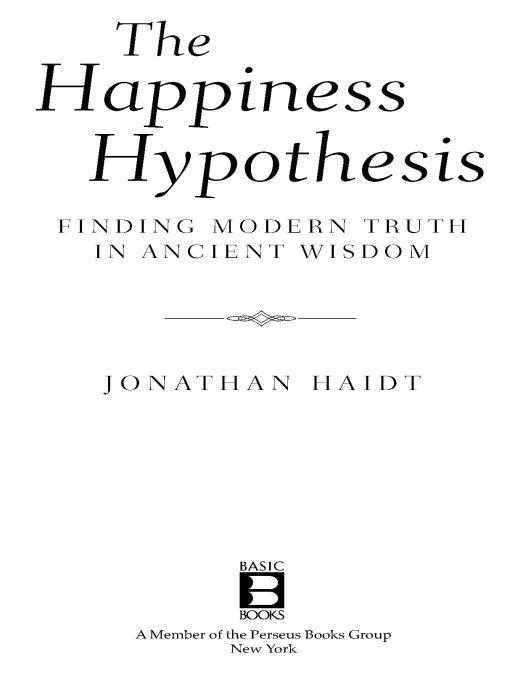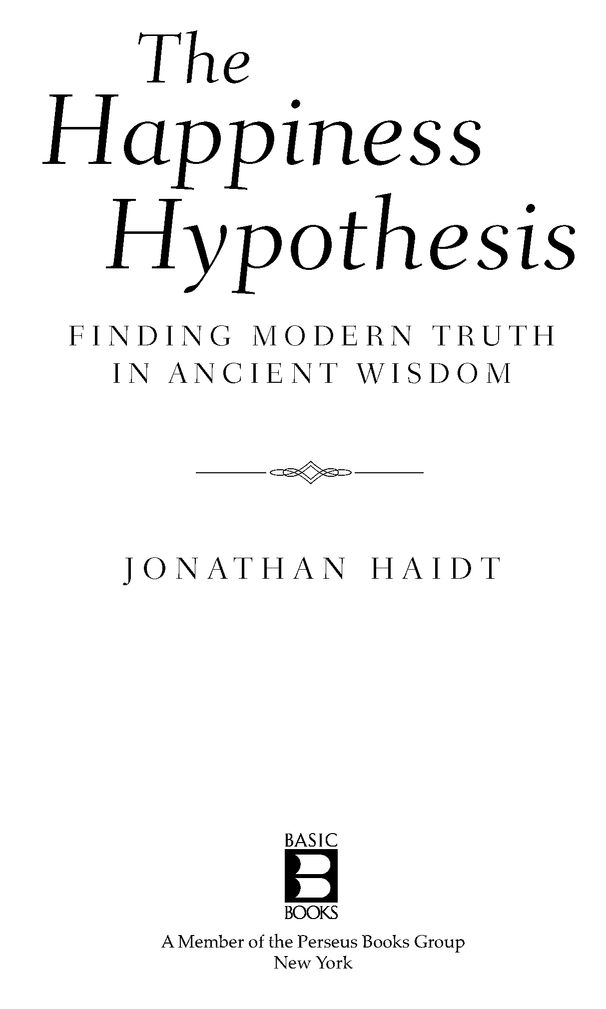Table of Contents
Praise for The Happiness Hypothesis
A fresh, serious, elevating guide to living everyday life better.
Library Journal
Haidt is a fine guide on this journey between past and present, discussing the current complexities of psychological theory with clarity and humor.... Haidts is an open-minded, robust look at philosophy, psychological fact and spiritual mystery, of scientific rationalism and the unknowable ephemeralan honest inquiry that concludes that the best life is, perhaps, one lived in the balance of opposites.
Bookpage
An erudite, fluently written, stimulating reassessment of age-old issues.
Publishers Weekly, starred review
A sparkling investigation into the psychology of life and happiness.
Daniel Wegner, author of The Illusion of Conscious Will
Every page of this book provides gems of insight about the good life and where to look for it.
William Damon, author of The Moral Child
In this beautifully written book, Jonathan Haidt shows us the deep connection that exists between cutting-edge psychological research and the wisdom of the ancients. It is inspiring to see how much modern psychology informs lifes most central and persistent questions.
Barry Schwartz, Swarthmore College,
author of The Paradox of Choice: Why More Is Less
An intellectual tour de force that weaves into one fabric wisdom that is ancient and modern, religious and scientific, Eastern and Western, liberal and conservativeall with the aim of pointing us to a more meaningful, moral, and satisfying life.
David G. Myers, Hope College,
author of Intuition: Its Powers and Its Perils
ALSO BY JONATHAN HAIDT
Flourishing: Positive Psychology and the Life Well-Lived (co-editor)
for Jayne
Introduction:
Too Much Wisdom
WHAT SHOULD I DO, how should I live, and whom should I become? Many of us ask such questions, and, modern life being what it is, we dont have to go far to find answers. Wisdom is now so cheap and abundant that it floods over us from calendar pages, tea bags, bottle caps, and mass e-mail messages forwarded by well-meaning friends. We are in a way like residents of Jorge Luis Borgess Library of Babelan infinite library whose books contain every possible string of letters and, therefore, somewhere an explanation of why the library exists and how to use it. But Borgess librarians suspect that they will never find that book amid the miles of nonsense.
Our prospects are better. Few of our potential sources of wisdom are nonsense, and many are entirely true. Yet, because our library is also effectively infiniteno one person can ever read more than a tiny fractionwe face the paradox of abundance: Quantity undermines the quality of our engagement. With such a vast and wonderful library spread out before us, we often skim books or read just the reviews. We might already have encountered the Greatest Idea, the insight that would have transformed us had we savored it, taken it to heart, and worked it into our lives.
This is a book about ten Great Ideas. Each chapter is an attempt to savor one idea that has been discovered by several of the worlds civilizationsto question it in light of what we now know from scientific research, and to extract from it the lessons that still apply to our modern lives.
I am a social psychologist. I do experiments to try to figure out one corner of human social life, and my corner is morality and the moral emotions. I am also a teacher. I teach a large introductory psychology class at the University of Virginia in which I try to explain the entire field of psychology in twenty-four lectures. I have to present a thousand research findings on everything from the structure of the retina to the workings of love, and then hope that my students will understand and remember it all. As I struggled with this challenge in my first year of teaching, I realized that several ideas kept recurring across lectures, and that often these ideas had been stated eloquently by past thinkers. To summarize the idea that our emotions, our reactions to events, and some mental illnesses are caused by the mental filters through which we look at the world, I could not say it any more concisely than Shakespeare: There is nothing either good or bad, but thinking makes it so. I began to use such quotations to help my students remember the big ideas in psychology, and I began to wonder just how many such ideas there were.
To find out, I read dozens of works of ancient wisdom, mostly from the worlds three great zones of classical thought: India (for example, the Upanishads, the Bhagavad Gita, the sayings of the Buddha), China (the Analects of Confucius, the Tao te Ching, the writings of Meng Tzu and other philosophers), and the cultures of the Mediterranean (the Old and New Testaments, the Greek and Roman philosophers, the Koran). I also read a variety of other works of philosophy and literature from the last five hundred years. Every time I found a psychological claima statement about human nature or the workings of the mind or heartI wrote it down. Whenever I found an idea expressed in several places and times I considered it a possible Great Idea. But rather than mechanically listing the top ten all-time most widespread psychological ideas of humankind, I decided that coherence was more important than frequency. I wanted to write about a set of ideas that would fit together, build upon each other, and tell a story about how human beings can find happiness and meaning in life.
Helping people find happiness and meaning is precisely the goal of the new field of positive psychology, so this book is in a way about the origins of positive psychology in ancient wisdom and the applications of positive psychology today. Most of the research I will cover was done by scientists who would not consider themselves positive psychologists. Nonetheless, I have drawn on ten ancient ideas and a great variety of modern research findings to tell the best story I can about the causes of human flourishing, and the obstacles to well being that we place in our own paths.
The story begins with an account of how the human mind works. Not a full account, of course, just two ancient truths that must be understood before you can take advantage of modern psychology to improve your life. The first truth is the foundational idea of this book: The mind is divided into parts that sometimes conflict. Like a rider on the back of an elephant, the conscious, reasoning part of the mind has only limited control of what the elephant does. Nowadays, we know the causes of these divisions, and a few ways to help the rider and the elephant work better as a team. The second idea is Shakespeares, about how thinking makes it so. (Or, as Buddha said, Our life is the creation of our mind.) But we can improve this ancient idea today by explaining why most peoples minds have a bias toward seeing threats and engaging in useless worry. We can also do something to change this bias by using three techniques that increase happiness, one ancient and two very new.
The second step in the story is to give an account of our social livesagain, not a complete account, just two truths, widely known but not sufficiently appreciated. One is the Golden Rule. Reciprocity is the most important tool for getting along with people, and Ill show you how you can use it to solve problems in your own life and avoid being exploited by those who use reciprocity against you. However, reciprocity is more than just a tool. It is also a clue about who we humans are and what we need, a clue that will be important for understanding the end of the larger story. The second truth in this part of the story is that we are all, by nature, hypocrites, and this is why it is so hard for us to follow the Golden Rule faithfully. Recent psychological research has uncovered the mental mechanisms that make us so good at seeing the slightest speck in our neighbors eye, and so bad at seeing the log in our own. If you know what your mind is up to, and why you so easily see the world through a distorting lens of good and evil, you can take steps to reduce your self-righteousness. You can thereby reduce the frequency of conflicts with others who are equally convinced of their righteousness.


